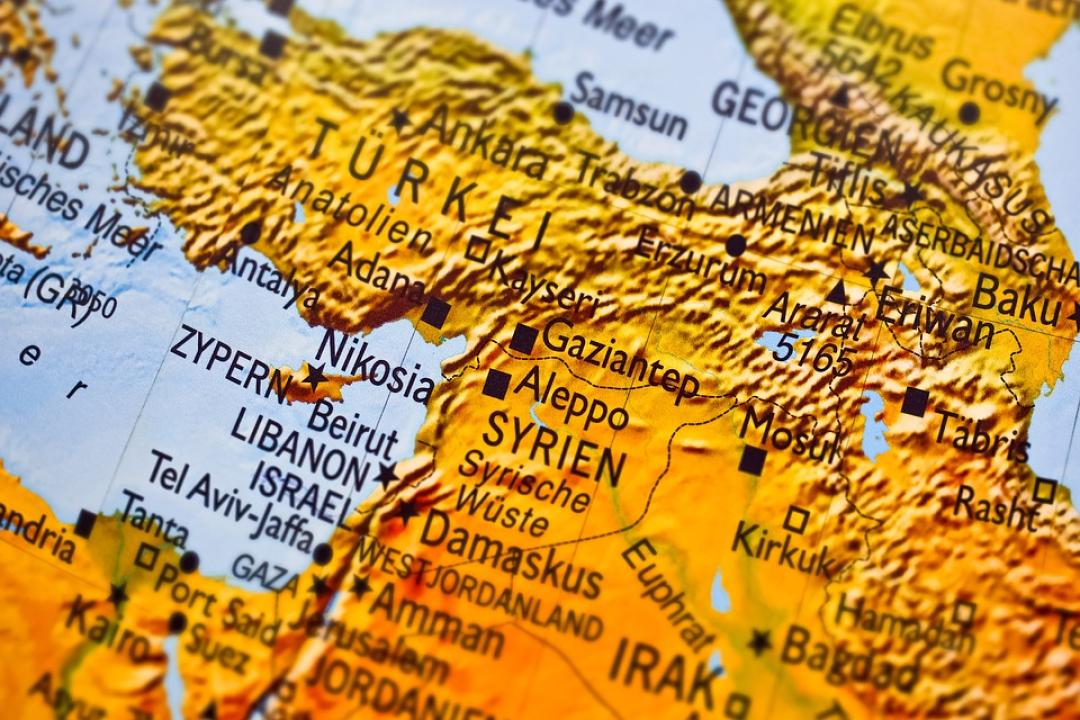
Armenia's mission in Syria

In mid-August 2018, Nicol Pashinyan, the Armenian prime minister, announced an "unprecedented Armenian-Russian initiative" in the humanitarian field during a mass demonstration. After his recent visit to Vladimir Putin in Moscow in early September, he became more concrete: Armenia will carry out a humanitarian mission together with Russia in Syria.
In an interview with the news agency "Mediamax", Armenian Defense Minister David Tonoyan revealed further details about the planned deployment in Syria. According to Tonoyan, by the end of the year, his ministry will send "about 100 specialists" to the Arab country that has greatly been affected by the long-standing war. These would be military doctors, troop pioneers and soldiers, who would, however, deal "exclusively with humanitarian affairs".
In their statements, the Armenian officials continuously emphasize that this is a purely humanitarian mission. According to the defense minister, the Armenian military will be stationed in Aleppo, where they would help the local Armenian community to deal with the severe emergency. Armenia will act in Syria in close consultation with the Syrian government and Russia. Any possibility of involvement in military operations is excluded by Tonojan.
The Armenian political scientist, Eduard Abrahamyan, states in his article ("Understanding Armenia's Syrian Gamble") three possible reasons that might have moved the Armenian government under Nikol Paschinyan to engage in Syria.
First, this could be a manifestation of the coercive diplomacy vis-à-vis the new Armenian political elite: Armenia may have been forced by Moscow to be involved in the Syrian conflict. Russia has been trying for some time to internationalize support for the regime of Bashar al-Assad. However, even close allies of Russia, such as Belarus, Kyrgyzstan and Kazakhstan have so far given an unequivocal rejection to Moscow’s demands to participate in any way in the Syrian conflict. Armenia is most vulnerable to political pressure from Moscow. For example, Russia could have threatened Armenia with an arms delivery stop.
Secondly, Nicol Pashinyan's government could try to appease Russian President Vladimir Putin through its involvement in Syria. For relations between Moscow and Yerevan have not been smooth since the so-called "velvet revolution" in Armenia, because every institutionalized democracy in immediate Russian neighborhood is perceived by Putin as a threat to his own position of power.
Third, it could be a concession from Yerevan, says Abrahamyan. In return, Russia would not interfere in the domestic affairs of Armenia, so the hope. However, the expert considers such an assumption "naïve" because Moscow would under no circumstances passively observe how the corrupt oligarchic political class of Armenia is increasingly dismantled. It is precisely this political environment that is an important instrument of Russian control of the small South Caucasus country.
The US reaction to the announcement of Yerevan was rather cautious. "We understand the Armenian government's desire to help the Armenian population in Syria," the US Embassy said. The embassy did not want to comment on a "hypothetical Armenian mission in Syria". However, it referred in the same statement to the situation in the Syrian province of Idlib, where "three million innocent civilians are being threatened by an imminent attack by the Assad regime supported by Russia and Iran."
The once numerous Armenian community in Syria numbered between 100 000 and 110 000 people before the outbreak of the war, of which about 60% had lived in greater Aleppo. A large part of the Syrian Armenians left the country after the beginning of the bloody conflict in 2011. Even according to optimistic estimates, there are no more than 20,000 Armenians left in the country. The Armenian Ambassador to Syria, Arman Nawasardjan, said in 2016 that he considered this figure excessive and estimates that there are currently a maximum of 8 000 ethnic Armenians living in Syria.
See Also


Mirzoyan Meets US Deputy Assistant Secretary Joshua Huck

Azerbaijani President Holds Talks with UAE and German Business Delegations on Economic Cooperation

Grigoryan Confirms Armenia’s Readiness to Dissolve OSCE Minsk Group Upon Peace Treaty Signing

Azerbaijani Official Warns of Ecological Risks to Caspian Sea, Similar to Lake Urmia and Aral Sea

